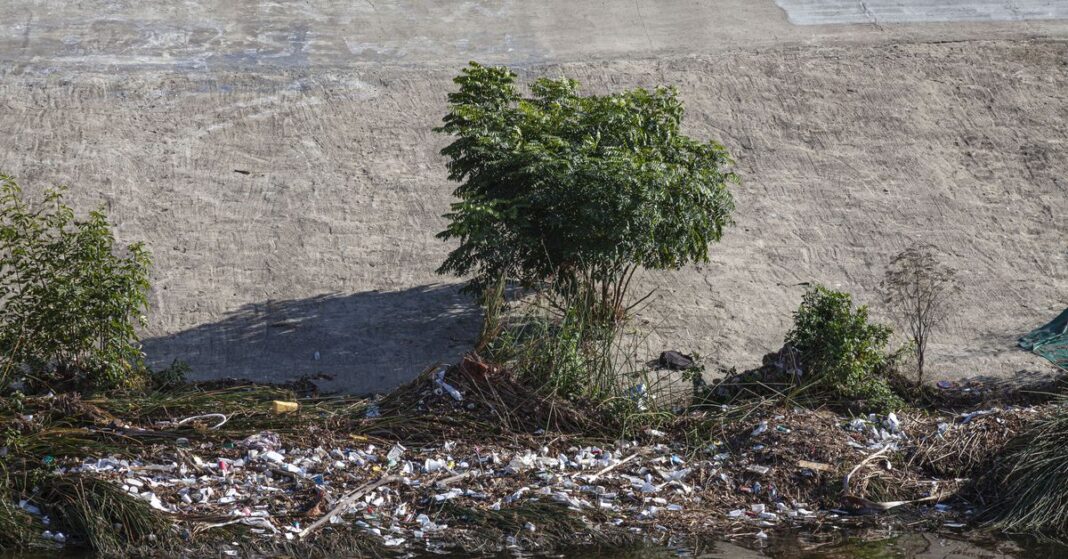We’ve known for years that plastic recycling rates are low, but they’ve managed to get even worse. The state of plastic recycling in the US is so abysmal that no plastic packaging can even be considered recyclable, according to a new report published today by environmental group Greenpeace.
Households in the US tossed out 51 million tons of plastic waste in 2021, says the new report. Just 2.4 million tons of that plastic was recycled, or just under 5 percent — compared to 8.7 percent in 2018.
With so little of the waste recycled, no type of plastic used in the US meets an industry-backed standard for what’s considered “recyclable,” says Greenpeace
With so little of the waste recycled, no type of plastic packaging used in the US meets an industry-backed standard for what’s considered “recyclable,” says Greenpeace. For this report, they looked at a benchmark set in the Ellen MacArthur Foundation’s Global Commitment — an effort to get organizations around the world to reduce plastic waste. Big companies such as Apple and Walmart have signed on to the commitment. For a type of plastic to be considered “recyclable in practice and at scale,” it needs to have a recycling rate of 30 percent, the Ellen MacArthur Foundation says.
That’s a far cry from how much plastic is actually being rehashed in the US — even when looking specifically at the two most commonly recycled types of plastics — the ones used in beverage bottles and containers for common household goods. Greenpeace estimates that US recycling facilities only have the capacity to process about 20.9 percent of polyethylene terephthalate (PET) used to bottle up drinks. For high-density polyethylene (HDPE) — commonly made into milk jugs, shampoo, and detergent bottles — capacity falls to just 10.3 percent.
The findings build on a 2020 report by Greenpeace that found that only some PET and HDPE bottles can be legitimately labeled “recyclable” based on the Federal Trade Commission’s “green guide” to environmental marketing. That guide says companies should only make unqualified claims about their packaging or products being “recyclable” if 60 percent of their consumers have access to a recycling facility. In 2022, 60 percent of the US population did have access to municipal collection of PET and HDPE bottles and jugs for recycling, according to Greenpeace. But that percentage falls to 29 percent for polypropylene commonly used in yogurt containers, 5 percent for plastic cups, and 1 percent for plastic plates. And — again — just because people have access to PET and HDPE recycling facilities doesn’t mean that those products are actually getting recycled.
Greenpeace analyzed the US’ roughly 370 material recovery facilities to conduct its surveys. The organization’s findings build on previous research by the National Renewable Energy Laboratory that found that the plastic recycling rate in the US had fallen to about 5 percent in 2019. Advocacy groups The Last Beach Cleanup and Beyond Plastics similarly found that the recycling rate remained at about 5 percent in 2021.
The US, one of the world’s biggest plastic polluters, has struggled to figure out what to do with its plastic waste since a monumental shift in 2018. That’s when China, where the US previously shipped a majority of its so-called recyclables, decided to stop accepting most plastics.
Plastic pollution is a global problem that has persisted despite decades of marketing aimed at shifting responsibility to consumers through recycling. Just 9 percent of all the world’s plastic waste had ever been recycled as of 2015, a 2017 study published in the journal Science Advances found. And because plastic degrades each time it’s rehashed, even gadgets made with recycled materials typically need to be reinforced with new plastics — generating ever more plastic waste.


